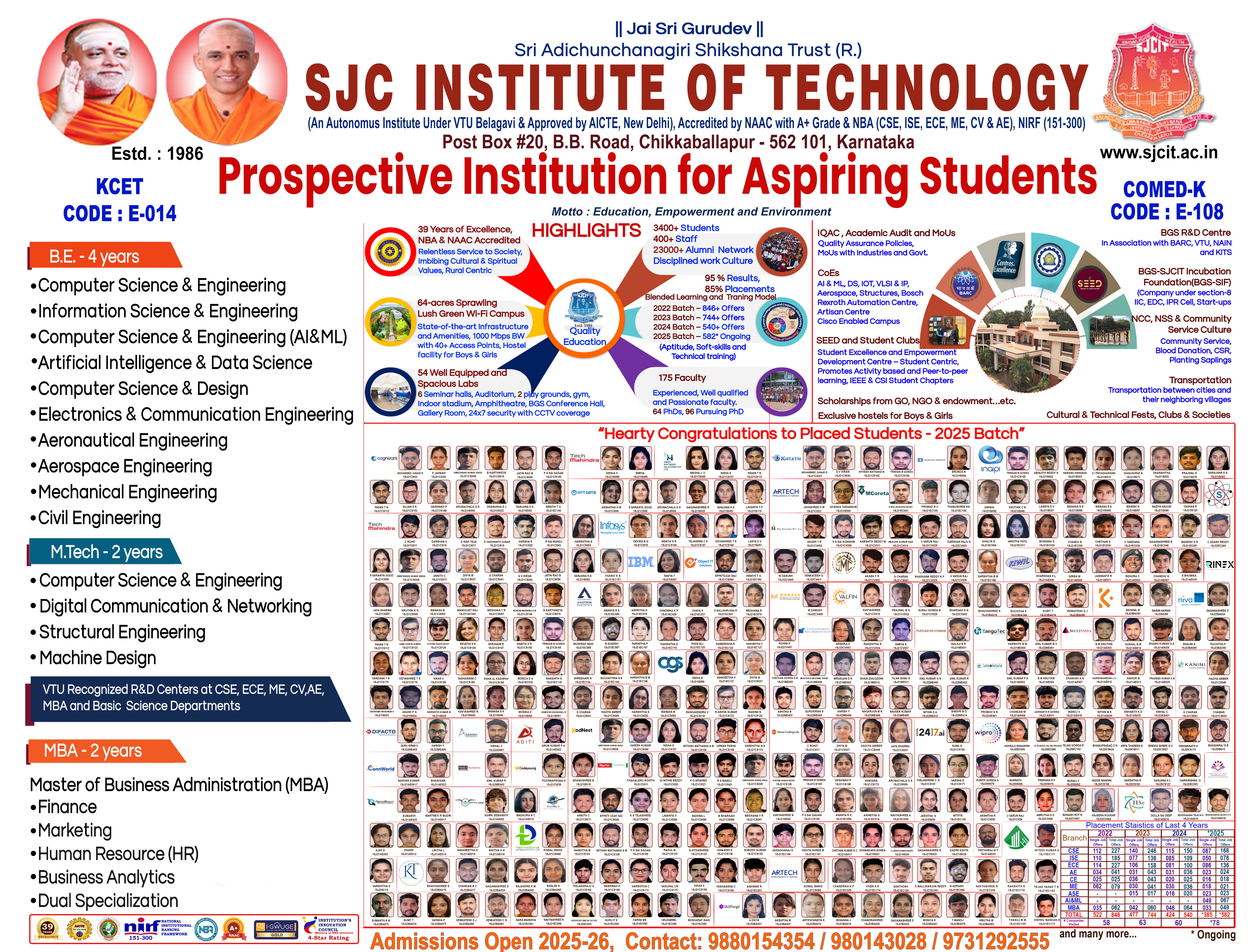Physical Infrastructure:
The Institute has well developed infrastructure comprising of 1 Administrative block and 5 Academic Blocks having 54 ICT enabled class rooms, 6 Seminar Halls, 3 Meeting Halls and 2 Board Rooms. The Seminar Halls are equipped with LCD projector, computer with internet connectivity and public address system. Also, the institute has one auditorium with a seating capacity of 1300 and one Amphitheatre for conduction of cultural and student centric activities. The Institution has 50 spacious Laboratories with required equipments and softwares for all the departments. All the laboratories are equipped with safety measures like Fire Extinguishers, First Aid Box etc. Gymnasium and Yoga Centre are also available in the campus. The institute has huge play ground having facilities for cricket, hockey, basketball, volleyball, football, running tracks etc., Also, Indoor stadium with badminton and table tennis courts.
Internet and ICT resources:
The college is facilitated with 1060 computers that are accessible to the students and the staff members for academic, research and examinations. The entire campus is monitored by CCTV facility. The CCTVs are installed in the college campus at Academic Block, IT Block , Library etc. which assist to monitor the campus activities. Internet Bandwidth connectivity is upgraded to 800 Mbps as per the requirements. Wi-Fi connectivity is provided for the entire campus. The institute has a total of 99 LCD projectors, 3 Interactive flat panel displays of 65”, 28 printers, 25 scanners and the necessary system & Application Software.
Library Resources:
Our Central Library covers an area of 9715 sq.ft. The library has good collection of books and Journals in Science, Engineering, Technology, Humanities and Management. It maintains separate collections of reference books, back volumes of journals and compact discs. The users can search the Library Online Catalogue by author’s name, title, subject and keywords through LIBSUIT OPAC. The total collection of library books around 86220 volumes and 13621 titles, National, International Journals and Magazine. The Institute is subscribed to VTU Consortium e-Resources which extends facility to our students and faculty for accessing more than 6155 e-Journals and 5000 e-Books.
Maintenance of Campus Infrastructure:
Our Institution has a maintenance team comprising of Site Engineer, which carries out the maintenance of buildings, classrooms, seminar halls, and laboratories. The Maintenance team is headed by Registrar, who monitors the work of the Campus Supervisor at the next level. Major works will be completed during the winter and summer vacations and minor works are completed as needed without interfering with academic activities.




